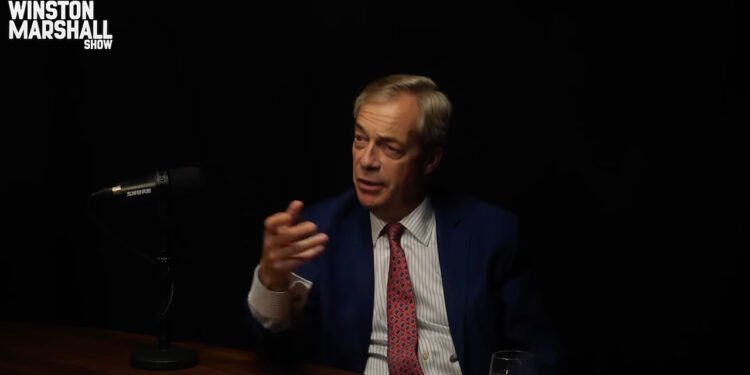In British politics, few relationships can be as complex and contentious as that between Nigel Farage and Tommy Robinson. Both loud voices in right-wing politics, but Nigel Farage is always forceful to distance himself from Robinson. The situation has been further pushed into the press recently with Elon Musk’s support of Tommy Robinson.
Robinson, whose real name is Stephen Yaxley-Lennon, emerged on the political scene as co-founder of the English Defence League (EDL) in 2009, establishing himself as a controversial figure in British politics. Meanwhile, Farage was building his reputation through UKIP and later Reform UK, pursuing a different kind of political strategy.
The tension between these two figures came to a head during UKIP’s later years. Farage, who had led UKIP to its greatest successes, ultimately quit the party over its growing association with Robinson. His departure wasn’t merely a personal disagreement—it represented a fundamental clash of political approaches and values.
There are several key reasons why Farage has consistently distanced himself from Robinson:
First, Farage has repeatedly expressed concern about Robinson’s methods and associations. He has described Robinson as “entirely unsuitable to be involved in any political party” and criticized his entourage of “violent criminals and ex-BNP” members. This stance reflects Farage’s attempts to maintain what he sees as political legitimacy.
Second, their approaches to political activism differ significantly. While Robinson has been known for street-level activism and confrontational tactics, Farage has accused him of “stirring up hatred”, preferring instead to work within established political channels.
The divide between these figures has recently resurfaced in the context of Reform UK. Farage has explicitly stated that he never wanted Robinson to join UKIP and doesn’t want him to join Reform UK. This position has even led to tension with potential allies, as evidenced by recent disagreements with Elon Musk over Robinson’s role in British politics.
Farage’s stance has come at a potential cost. He has stated he is prepared to forego donations to defend Reform UK’s “principles” rather than align with Robinson, suggesting this is not merely a tactical position but a matter of fundamental political philosophy.
The rift between these two figures represents more than personal animosity—it reflects a broader debate within British right-wing politics about methods, messaging, and legitimacy. Farage’s persistent distancing from Robinson highlights his attempt to maintain what he sees as credible, mainstream political influence while avoiding association with more controversial elements of right-wing activism.
A recent twist in this political saga has emerged with Elon Musk’s vocal support for Robinson. Musk has demanded Robinson’s release from prison, framing the imprisonment as a political issue rather than a legal one. The tech billionaire’s intervention comes while Robinson serves an 18-month sentence for contempt of court, stemming from his violation of a court order by repeating libelous claims. Musk’s support appears to be rooted in his view of Robinson’s controversial documentary work, with the billionaire questioning why Robinson is “in a solitary confinement prison for telling the truth”. This stance has created further tension with Farage, who continues to maintain his distance from Robinson despite potential political and financial consequences.

































